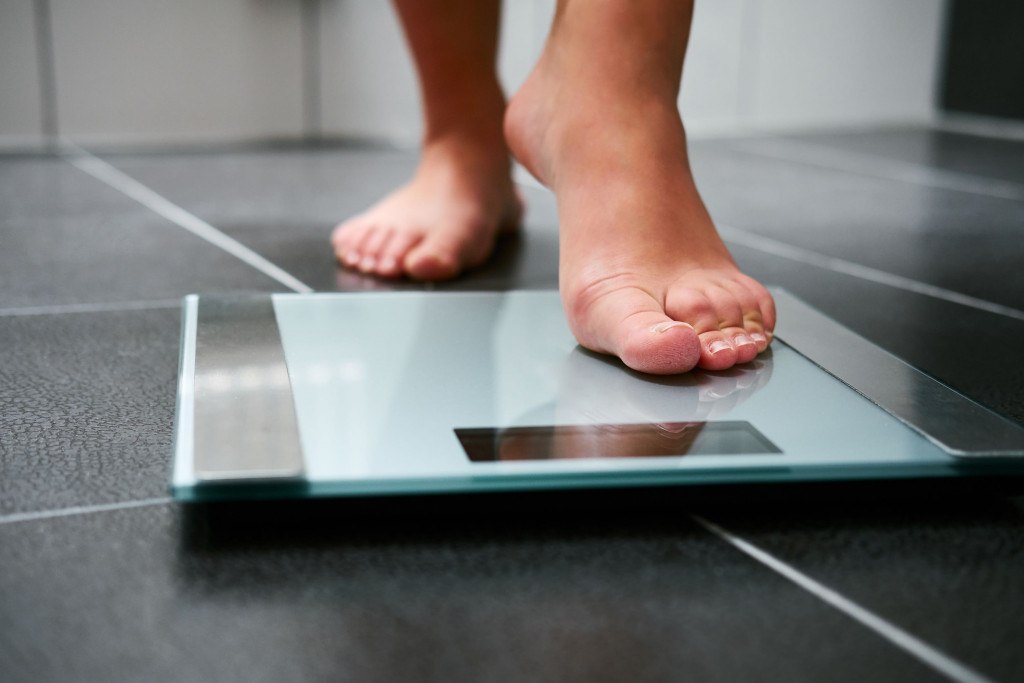7 Nutritionists on the Reasons You’re Not Losing Weight
Feel like you're doing everything in your power to get in shape, but the scale isn't moving? These Philly nutritionists may know why you're not losing weight.

Wondering why you’re not losing weight? Nutrition may be the answer. Photograph by iStock/Rostislav_Sedlacek
As we all know, your weight is just one small piece of your overall health. But, if you are in a place in your health journey where losing weight is important or necessary, it can be incredibly frustrating when the scale just won’t budge.
Thankfully, there are professionals who can help. Best of Philly-winning OnPoint Nutrition, a collective of nutritionists based in Rittenhouse, have successfully coached tons of clients to lose weight by monitoring their eating habits through an app, guiding them to eat well when dining out, and video counseling sessions. After working with so many clients, they’ve been able to spot some of the most common mistakes they see people making with their nutrition when they’re trying to lose weight. Below, the team at OnPoint shares the biggest reasons people are not losing weight, even though they’re working hard at it.
You’re Not Eating Enough, or Often Enough
“Eating regularly throughout the day keeps your energy levels high and hunger in check which, in turn, prevents over eating at later meals. Not only does skipping meals affect your nutrient consumption, if you love to exercise, you can expect your performance level to decrease due to low energy. Timing is everything here; be sure to fuel your body pre and post-workout.
“We recommend our clients eat within an hour of waking and then every three to four hours following to prevent your body from going into starvation mode. You’ll end up storing fat (not burning it) for energy this way. Got snacks? Try keeping 100 calorie packs of nuts or protein bars on hand to make sure you’re staying on track while on the go. It also wouldn’t hurt to set an alarm on your phone to remind you to break for a quick bite.” — Katelan Glutz
You’re Not Getting Enough Sleep
“Sleeping less than seven hours could be the reason you’re not losing weight, despite making healthy food choices and exercising regularly. Sleep deprivation throws off your leptin and ghrelin levels. Leptin is responsible for keeping you full while ghrelin’s job is to stimulate hunger and increase the amount of fat your body stores. When you slack on sleep, leptin levels decrease, and ghrelin levels increase, which makes you feel hungry all day long! A lack of sleep can also affect cortisol levels. Cortisol activates the reward center in your brain, leading to sugar and fat cravings. If you find yourself feeling hungry after eating and reaching for the sweets, make sure you give yourself an early bedtime.” — Zoe Fienman, RD, LDN
You’re Not Eating Enough Protein
“Focusing on an intake of 20 to 30 percent of calories coming from protein can boost metabolism, while limiting the number of calories a person consumes. I have observed in numerous clients that I have counseled that increasing protein intake results in less cravings for sweets and salty snacks. This is a result of protein’s direct effect on the hormone ghrelin — the appetite regulator. I always recommend starting your day with a solid serving of protein to not only keep you feeling satiated through the day but to also restrict the production and release of ghrelin.” — Ivy Eliff
You’re Avoiding Carbs
“Contrary to popular myths, carbohydrates are crucial for optimum health and wellness. Your brain’s preferred form of fuel is glucose, and your brain is priority number one! Glucose is synthesized easily from dietary carbohydrates. Common sources are whole grains, fruit, beans, and starchy veggies. Skipping carbohydrates can also result in a very high fat diet — not necessarily healthy and with the potential to make us feel sluggish. Bottomline: eat a balanced diet that includes all food groups!” — Emily Pierce, RD, LDN
You’re Too Focused on Calories
“The truth is, not all calories are created equal. If you’ve hit a plateau, your obsession with calorie counting may be the reason why. Calories are divided into three main macronutrients: carbohydrates, protein, and fat. Each plays an important role in the body and are needed in varying ratios depending on your activity level, age and medical conditions. Don’t forget to focus on quality of foods too. For example, try swapping your 100 calorie bag of baked chips for popcorn. The popcorn fills that salty crunch you’re craving, is low in fat, contains satiating fiber, and won’t spike your blood sugar — all key ingredients in avoiding that mid-afternoon slump.” — Kaitlin Sherman
You’re Not Drinking Enough Water
“Our kidneys need the right amount of water to be able to function properly to flush out the toxins we accumulate. Without enough water, they can’t do their job, so some of their workload gets transferred to our livers. Our livers should be working to burn fat into energy, but are now doing the kidney’s job as well. The less fat the liver burns, the less weight you lose, so drink up! Start your morning off by chugging a big glass of H20 and set reminders during the day to make sure you’re hydrating properly.” — Gal Cohen, MS, RD
You’re Thinking About It the Wrong Way
“When it comes to weight loss, slow and steady always wins the race. If you’re headed for the finish line at a full sprint, you’ll most likely fall on the way there. Lasting weight loss comes from creating a healthy, balanced lifestyle — not restriction, prolonged fasting, or eating copious amounts of fat and protein. If you’re trying really hard to lose weight and not seeing progress, chances are you’re putting too many restrictions on yourself and telling all your friends you ‘just can’t’ because you’re on a diet. The faster you leave the ‘diet’ game and join the ‘healthy lifestyle’ team, you’ll start to see the progress you’ve been striving for — and be much happier doing it.” — Britney Kennedy


